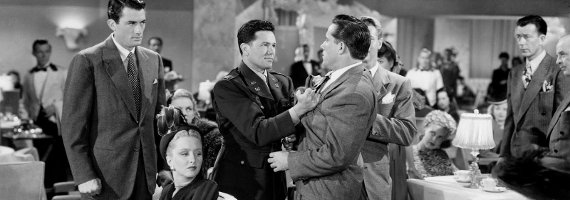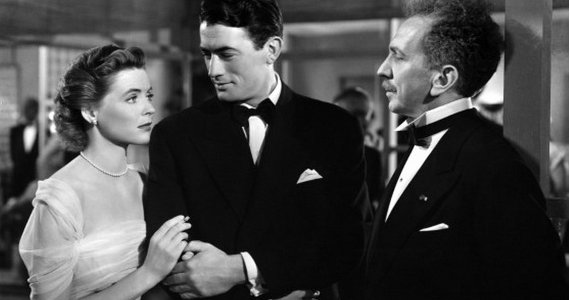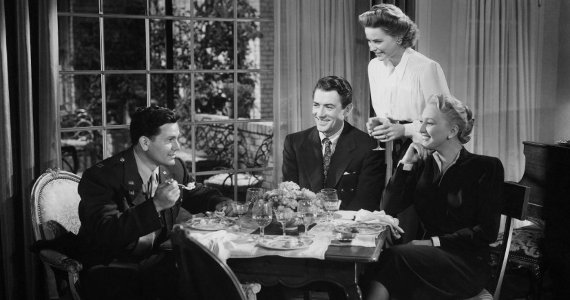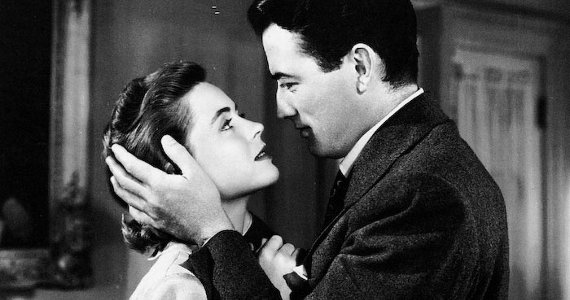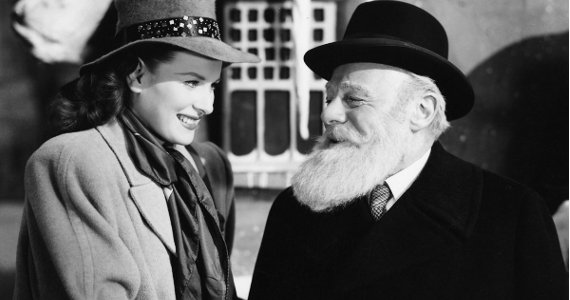 Since I’ve been going through the Best Picture winners I have been a little too stuck in the past two decades. The first edition of the series was on All About Eve which took home the 1950 Oscar, but since then I haven’t gone back to another black and white film. To remedy this problem I went back three years before that to watch Gentleman’s Agreement, a film with timeless themes and moving performances.
Since I’ve been going through the Best Picture winners I have been a little too stuck in the past two decades. The first edition of the series was on All About Eve which took home the 1950 Oscar, but since then I haven’t gone back to another black and white film. To remedy this problem I went back three years before that to watch Gentleman’s Agreement, a film with timeless themes and moving performances.When Philip Schuyler Green transfers to a New York City magazine from California, he is assigned a piece on antisemitism. In an effort to angle the story in an original way, he decides to introduce himself into New York society as a Jewish man since no one knows him. In the 8 weeks that he takes on this identity he experiences a wide range of prejudice that impacts every facet of his life. Along with the story he takes care of his ailing mother, his young son learning about hate for the first time, and finding love after being widowed for years. His romance with Kathy Lacey is stressed as she deals with knowing the truth about his story while balancing her tolerant viewpoints and ingrained judgements.
This movie would make a great double feature with To Kill a Mockingbird for any high school class. Gregory Peck overcoming discrimination really suits him. The message of the film is important and came out at a time when it was relevant and a bit controversial. It’s a great film because the relevancy is timeless. The themes of the film easily transfer to every marginalized group throughout American history. Gentleman’s Agreement does a great job of showing the varying levels of easily visible discrimination from housing and segregation. But it also discussed the prejudice not as easy to spot from the people who think they’re on the right side but under the surface carry some of the same hateful feelings. It even touches on Jewish people turning the hate into themselves and wanting to deny their identities.
Despite all the good the film accomplishes, it does get a little by the numbers. You know that when Phil asks his son to tell fellow students that he’s Jewish that it’s going to result in bullying later in the movie. It loses a bit of the impact because of that. It’s also why it would make a perfect movie to present to students. The movie ends with a few scenes philosophizing about the wrongness of discrimination. Of course all of it is true but it’s a little bit too much telling than showing. It’s still an important movie despite that and even more so because of the best picture win.
And its themes aren’t the only qualities deserving of praise. In keeping with his filmography dealing with many important issues, Elia Kazan won his first Best Director Oscar for this film. Kazan displays why he is such an influential director with his ensemble of impacting performances. Gregory Peck is perfect as usual and he’s joined by several others pulling more than their share. I’m not completely sure what won Celeste Holme her supporting actress win though. I kept waiting for a huge scene from her, but I just got an overall good performance.
Phil Green is no Atticus Finch, and the romantic storyline isn’t nearly as compelling of the family story in Mockingbird but it still accomplishes its purpose of bring antisemitism into the public conscious. The film is well made, especially under Kazan’s deft direction and Peck’s strong performance. Its win was certainly boosted with its hot button issue, but it’s still a great piece of filmmaking.
Won:
Best Picture
Best Supporting Actress – Celeste Holm
Directing – Elia Kazan
Nominated:
Best Actor – Gregory Peck
Best Actress – Dorothy McGuire
Best Supporting Actress – Anne Revere
Film Editing – Harmon Jones
Best Writing, Screenplay – Moss Hart
- The Bishop’s Wife – A bishop prays for help to build a new cathedral, but the Angel who comes to help is aiming to fix other issues in this romantic comedy – Won Best Sound & nominated in 4 other categories
- Crossfire – The mystery in this noir centers on a murder committed by one soldier in a group of Army vets and the hate-fueled motive – Nominated in 5 categories
- Great Expectations – Adaptation of the Charles Dickens novel about an orphan who comes into money and must learn the ways of the upper class – Best Art Direction-Set Decoration, Black-and-White, Best Cinematography, Black-and-White, & nominated in 3 other categories
- Miracle on 34th Street – The cherished Christmas movie about a department store Santa who claims to be the real deal – Won Best Actor in a Supporting Role (Edmund Gwenn), Best Story (Valentine Davies) and Best Writing, Adapted Screenplay (George Seaton) & nominated in 1 other category

